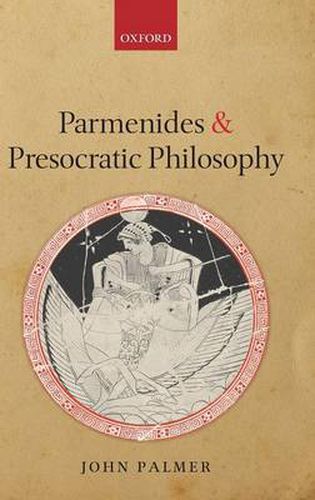Readings Newsletter
Become a Readings Member to make your shopping experience even easier.
Sign in or sign up for free!
You’re not far away from qualifying for FREE standard shipping within Australia
You’ve qualified for FREE standard shipping within Australia
The cart is loading…






Parmenides of Elea is generally considered the most profound and challenging of the Presocratic philosophers. How historians have understood his particular achievement has substantially determined how they portray the development of early Greek philosophy and science. John Palmer presents a new interpretation of Parmenides metaphysical poem, according to which he was the first philosopher to distinguish in a rigorous manner the fundamental modalities of necessary being, necessary non-being or impossibility, and non-necessary or contingent being. Palmer also reassesses the major Presocratics’ relation to Parmenides in light of this modal interpretation, focusing particularly on Zeno, Melissus, Anaxagoras, and Empedocles. Parmenides emerges as as the founder of metaphysics as a domain of inquiry distinct from natural philosophy and theology. The book also presents in an appendix the Greek text of the fragments of Parmenides’ poem with English translation and textual notes.
$9.00 standard shipping within Australia
FREE standard shipping within Australia for orders over $100.00
Express & International shipping calculated at checkout
Parmenides of Elea is generally considered the most profound and challenging of the Presocratic philosophers. How historians have understood his particular achievement has substantially determined how they portray the development of early Greek philosophy and science. John Palmer presents a new interpretation of Parmenides metaphysical poem, according to which he was the first philosopher to distinguish in a rigorous manner the fundamental modalities of necessary being, necessary non-being or impossibility, and non-necessary or contingent being. Palmer also reassesses the major Presocratics’ relation to Parmenides in light of this modal interpretation, focusing particularly on Zeno, Melissus, Anaxagoras, and Empedocles. Parmenides emerges as as the founder of metaphysics as a domain of inquiry distinct from natural philosophy and theology. The book also presents in an appendix the Greek text of the fragments of Parmenides’ poem with English translation and textual notes.